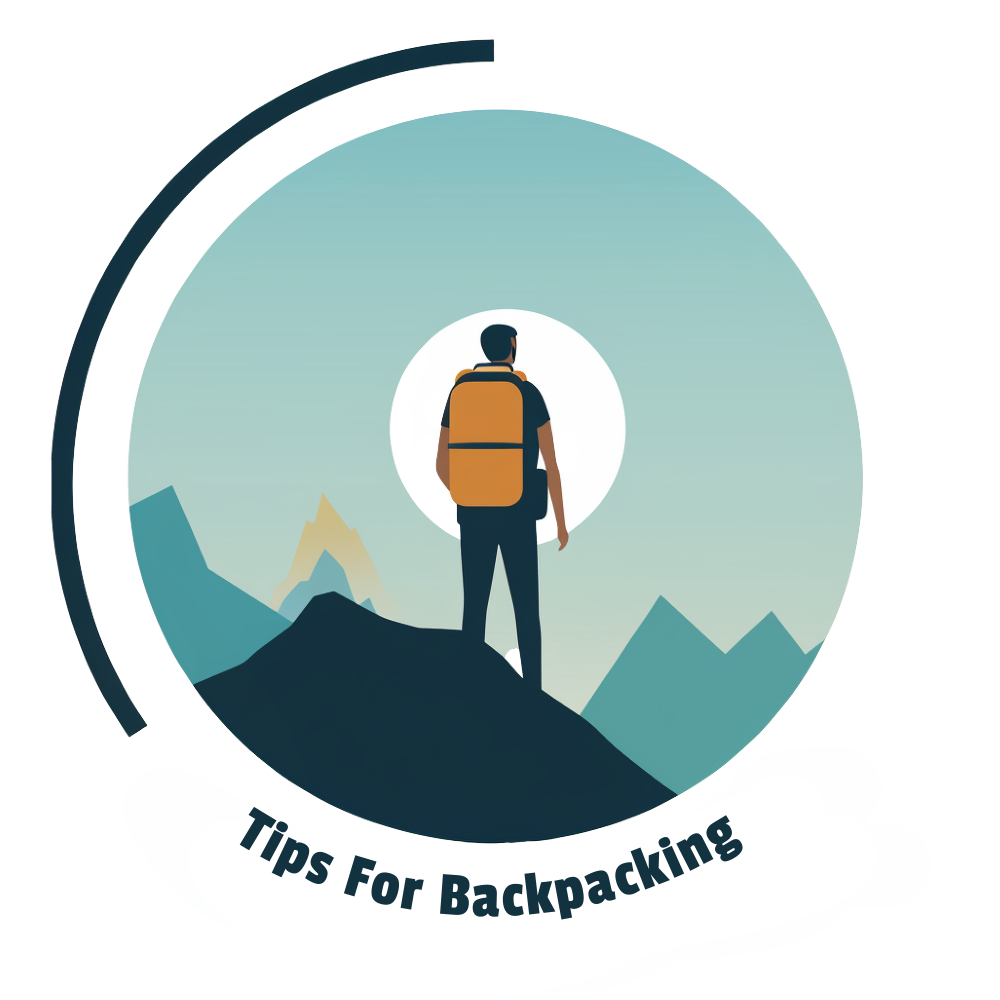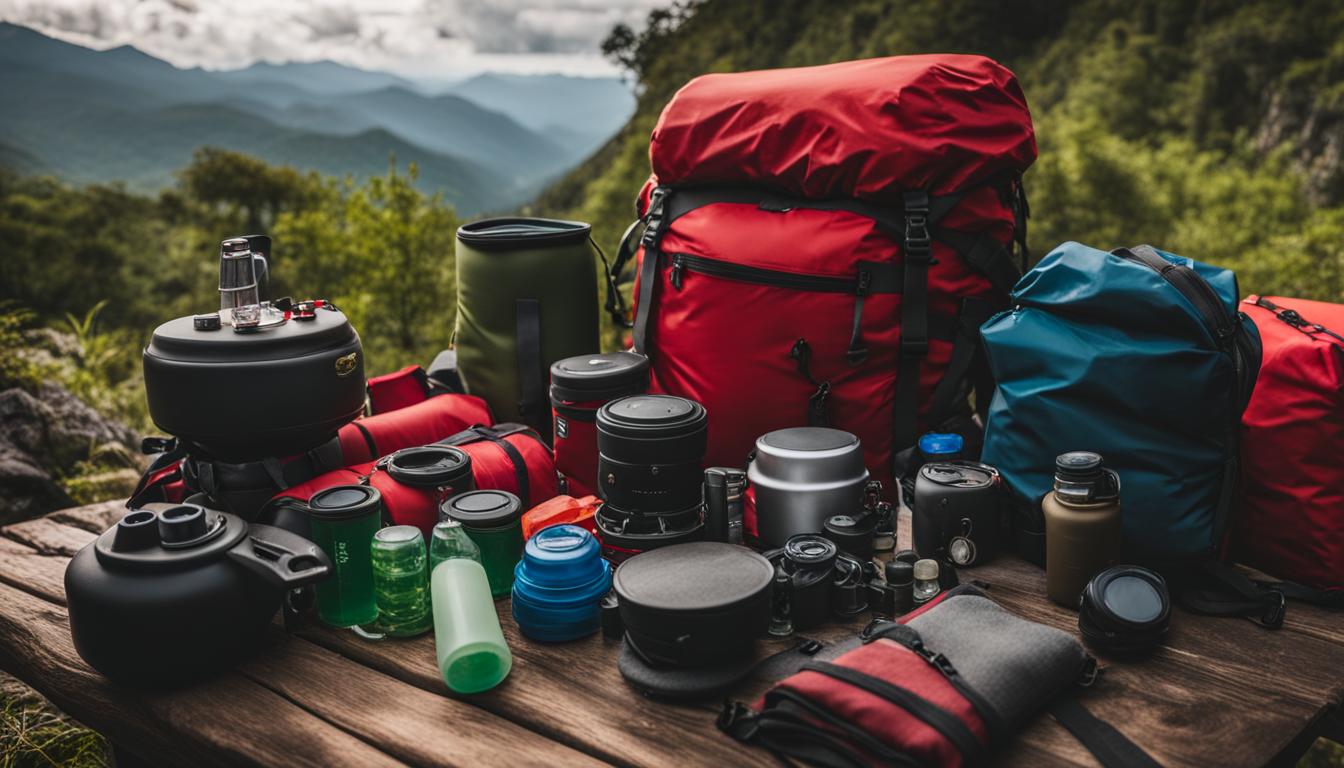Welcome to the beginner’s guide to efficient backpacking! If you’re new to backpacking and feeling overwhelmed, don’t worry – I’ve got you covered. In this guide, I’ll share some valuable tips and essential gear recommendations to help you plan your first backpacking trip like a pro. So let’s dive in and get started!
When it comes to planning a backpacking trip, choosing the right trail is key. Consider your fitness level and interests, and use online resources like Gaia GPS, AllTrails, Hiking Project, and Komoot to find well-established routes. It’s also important to gather detailed information about the trail, such as the location of campsites, water access points, and potential hazards.
Now, let’s talk about backpacking food. Eating well on the trail is crucial for maintaining energy levels. Look for lightweight and calorie-dense options like dehydrated entrees, ramen noodles, and high-calorie snacks. Don’t forget to pack cooking equipment and water purification tools!
Lastly, developing essential skills is vital for a safe and enjoyable backpacking experience. Be aware of your surroundings, ask questions, and embrace teamwork. Make sure to prioritize safety by checking the weather and carrying the Ten Essentials.
Key Takeaways:
- Choose a trail that suits your fitness level and interests
- Research and gather detailed information about the trail
- Pack lightweight and calorie-dense backpacking food
- Develop essential skills like awareness, teamwork, and navigation
- Prioritize safety by checking the weather and carrying the Ten Essentials
Backpacking Food Ideas and Preparation
When it comes to backpacking, having the right food and knowing how to prepare it can make all the difference in ensuring a successful and enjoyable trip. As a beginner backpacker, it’s important to consider both the weight and convenience of the food you pack. Opting for lightweight options can help minimize the overall weight of your backpack, making your hiking experience more comfortable.
Dehydrated entrees are a popular choice among backpackers due to their lightweight nature and minimal preparation requirements. They are available in a variety of flavors and can provide a hearty and satisfying meal after a long day on the trail. Additionally, affordable options like ramen noodles and boxed macaroni can be easily prepared with a lightweight stove and cooking pot.
When planning your meals, it’s crucial to prioritize calorie density. Foods that are high in calories per ounce will provide you with sufficient energy for your backpacking adventures. Consider packing items such as olive oil, walnuts, peanut butter, and Snickers bars, as they are all calorie-dense and easy to carry. Be mindful of any dietary restrictions or preferences you may have and plan your meals accordingly.
Creating a backpacking checklist is essential to ensure you have all the necessary food items and cooking equipment. Along with lightweight stoves and cooking pots, don’t forget to include utensils and a water filter or purifier to ensure access to clean water during your trip. Having a well-rounded checklist will help you stay organized and prepared for your backpacking journey.
What are the Essential Tips for Efficient Backpacking Beginners to Choose the Best Campsite?
When looking for the best campsite for backpacking, beginners should consider factors like location, terrain, and availability of resources. Look for established campsites with level ground and access to water. Take into account local regulations and weather conditions. Research and planning are key for a successful backpacking trip.
Essential Skills for Beginner Backpackers
When it comes to venturing into the wilderness, beginner backpackers like me need to develop some essential skills for a safe and enjoyable experience. First and foremost, street smarts are just as valuable in the backcountry as they are in the city. Being aware of my surroundings and trusting my instincts can go a long way in ensuring my safety.
Another crucial skill is the ability to ask questions and seek help when needed. There’s no shame in reaching out to experienced backpackers or park rangers for guidance. Their knowledge can provide invaluable insights and enhance my journey on the trail.
Teamwork is also essential. Sharing responsibilities with my hiking partners not only lightens the load but also fosters a sense of camaraderie. From setting up camp to cooking meals, working together creates a more enjoyable atmosphere and strengthens our bond as a hiking team.
Of course, navigation skills are a must. I make it a point to familiarize myself with trail signs, maps, and directions. This way, I can confidently navigate through the wilderness, minimizing the risk of getting lost and maximizing my time exploring the beauty around me.
Lastly, embracing my authentic self and being comfortable in new surroundings is key. Backpacking allows me to disconnect from the hustle and bustle of everyday life and connect with nature. By letting go of any reservations, I can truly appreciate the peace and tranquility that the wilderness has to offer.
Remember, safety should always be a top priority. Checking the weather, carrying the Ten Essentials, and being prepared for emergencies are essential steps for any backpacker. With these skills in my toolkit, I feel confident in embarking on my backpacking adventures.

